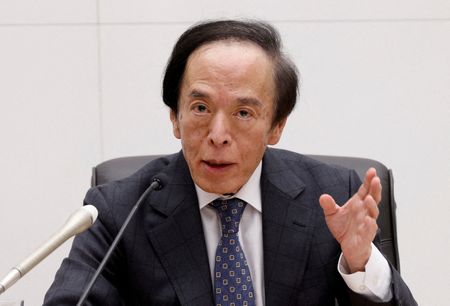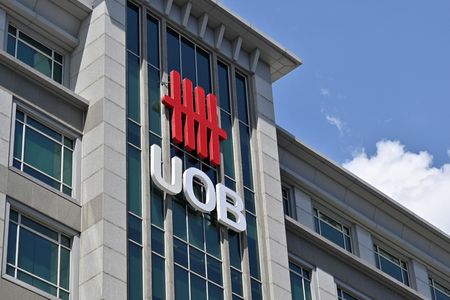TOKYO (Reuters) -Bank of Japan policymakers were divided in March over how soon the central bank should raise interest rates again as uncertainty stemming from U.S. tariff policies heightened, minutes of their meeting showed on Thursday.
“Downside risks stemming from U.S. policies had rapidly heightened and, depending on future developments in its tariff policy, it was quite possible that these risks would even have a significant negative impact on Japan’s real economy,” one member said, according to the minutes.
The member said the BOJ therefore “would need to be particularly cautious when considering the timing for the next rate hike.”
Another member said even with heightened uncertainty, the BOJ was not always obliged to conduct monetary policy in an overly cautious manner. The BOJ “might face a situation where it should act decisively,” the member said.
Another member said the BOJ should factor in firms’ and households’ inflation expectations, upside risks to prices and progress in wage hikes when making policy decisions at the next meeting.
At the March 18-19 meeting, the BOJ kept interest rates steady at 0.5%. Governor Kazuo Ueda warned of heightening global economic uncertainty at a post-meeting briefing, while pointing to the risk that rising food costs and stronger-than-expected wage growth could push up underlying inflation in Japan.
Last week, the BOJ again decided to keep interest rates steady.
Ueda said the timing for underlying inflation to converge toward the central bank’s 2% target has been “pushed back somewhat” – essentially signaling a pause in rate hikes for more clarity on the fallout from the higher tariffs.
(Reporting by Makiko Yamazaki; Editing by Christopher Cushing and Sam Holmes)










